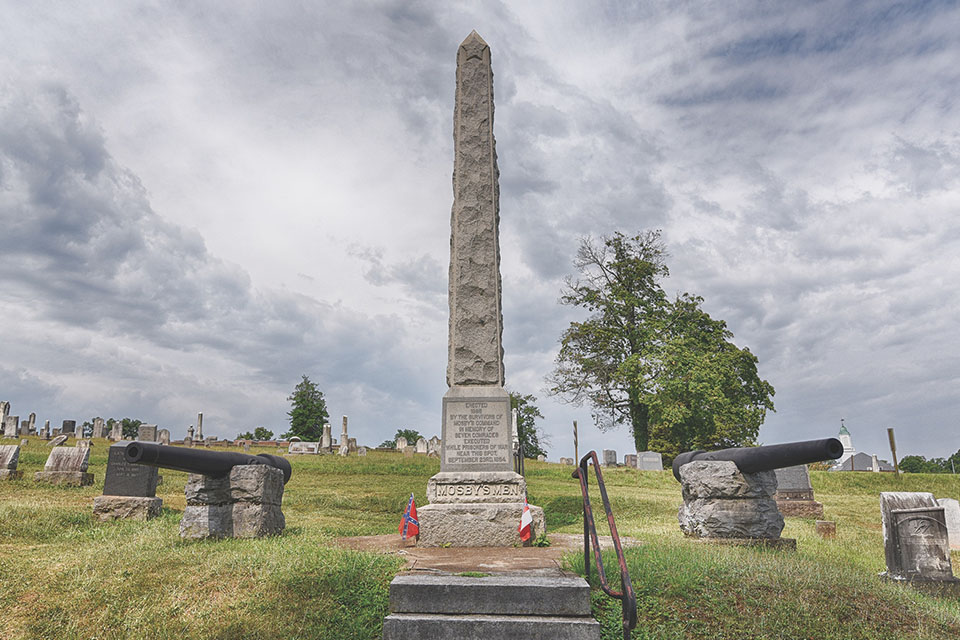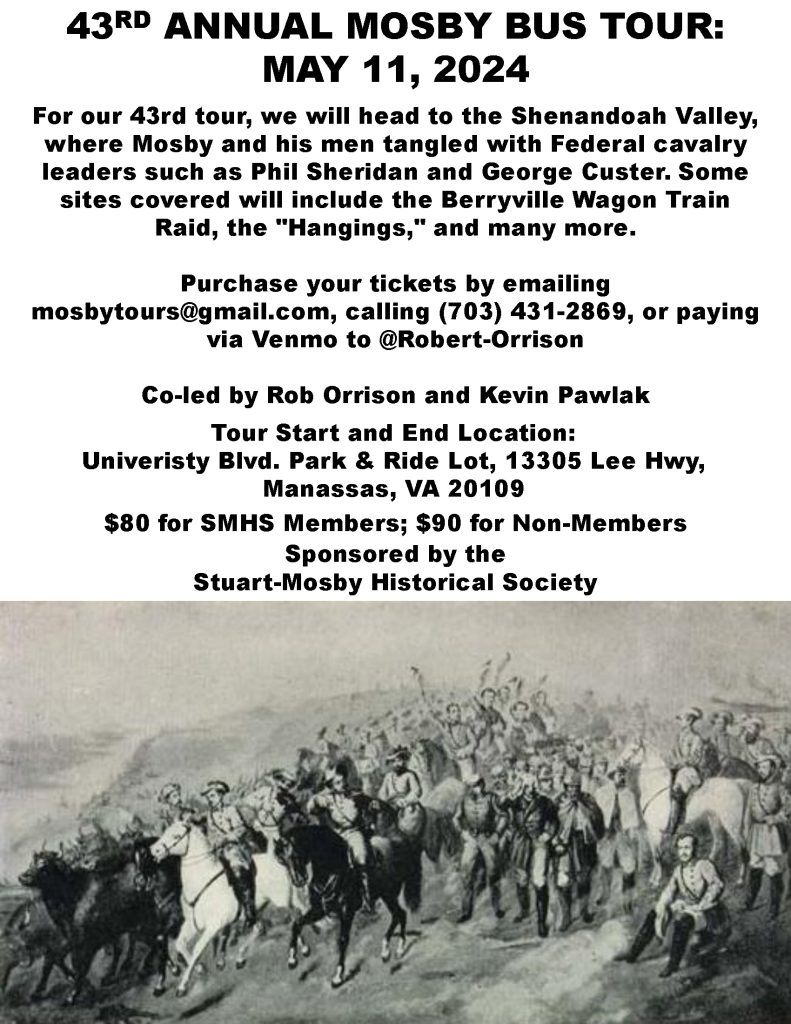John Mosby’s Retaliatory War
The Civil War was ugly by 1864. It had been an ugly, destructive war long before then, but the conflict took a decidedly dark turn in the war’s fourth year.
Few places witnessed this than the Shenandoah Valley and John Mosby’s Confederacy that summer and fall. A tit-for-tat of brutal acts waged back and forth between Mosby’s Rangers and Philip Sheridan’s Federal army, particularly the Yankee cavalry.
On August 13, 1864, Mosby’s men struck the wagon train of Sheridan’s horsemen outside Berryville. The raid netted over 500 horses and mules, 200 cattle, and 200 prisoners.
Six days later, after a strike against a picket post left one of George Custer’s cavalrymen dead, Custer ratcheted up the stakes of the game. He ordered his troopers to burn four nearby homes to send a message to the locals that aiding the Rangers would no longer be tolerated. They burned two; Mosby’s men caught up to them in the process of torching the third. “No quarter! No quarter!” yelled Captain William Chapman as they charged the home-burners. Fifteen of Custer’s men were killed or mortally wounded in the close-quarters melee. Bad blood festered between the two sides.
They met again on September 23 outside Front Royal. Mosby’s men pounced on what they thought was a vulnerable Federal ambulance train. They failed to detect a large Federal cavalry force accompanying the train. It was too late. The Confederates pitched into the train before quickly deciding to withdraw. Federals became incensed when one of their men, Lieutenant Charles McMaster claimed to have been shot while in the act of surrendering. The Yankees, under orders likely from General Alfred Torbert, executed the six Rangers they managed to capture in the fight. Less than a month later, one more Ranger became the victim of a Federal noose.

Mosby was not present during these executions, but he was surely aware of them. He sought to put an end to this back-and-forth brutality. After seeking permission from his superiors and contemplating the legality of his proposed action (Mosby was a prewar lawyer), Mosby proposed to hang seven of Custer’s men (he believed for the rest of his life that Custer was at fault).
Custer’s prisoners in Mosby’s possession drew straws to see who the unlucky seven would be. Then, Mosby’s men led them to Berryville to be hanged. Ultimately, three were hanged, two were shot, and two escaped. That was enough for Mosby. He informed Sheridan of his reasoning for ordering these retaliatory actions. “Hereafter, any prisoners falling into my hands will be treated with the kindness due to their condition, unless some new act of barbarity shall compel me, reluctantly to adopt a line of policy repugnant to humanity.”
Sheridan responded (though no modern eye has seen the reply), but the senseless retaliation stopped. The killing did not. Both sides continued to face one another in many skirmishes until the war’s close in 1865.
If you’re interested in visiting the sites mentioned above, join Rob Orrison and I for the 43rd Annual Mosby Bus Tour on May 11, 2024. Details are on the flyer below!

MOSBY’S “retaliatory” war? Wow, talk about bias. Title makes it sound as if the war was Mosby’s responsibility, and he alone was “retaliatory”.
Come on… retaliatory recognizes somebody did something first, like the first punch. Mosby in this case punched second and ultimately got the tit-for-tat to stop. Good man.
No, “So and so’s retaliatory war” makes it sound like Group A were just going along minding their own business doing what was correct, but unpopular, and then Group B ‘retaliated’ for it. “Retaliation” does not have any good connotations, or denotations.
It’s hard not to make analogies to today’s asymmetrical battlefield.
Interesting title considering the Federals started the retaliations.
Sheridan’s army was remarkably cruel. Fr. James Sheeran chaplain to the 14th La. Regt. tells the story of the Widower Riordan. A small action occurred near Riordan’s farm – a s”mall spot of land” -in the Shenandoah valley. Many of the Federal wounded were treated at Riordan’s farm- with the Riordan family helping. Yet, when the Union forces came though, an unnamed Federal general ordered the crops destroyed and the barn burned. Inside the barn was the feed needed to get the livestock through the winter. This Union force has been burning all the farms along that lane. The Federal doctor asked the general to re-consider. But, he would not. There was very bitter feelings in that corner of the war.
Tom
Don’t tell that to this bunch of writers. Deaf ears.